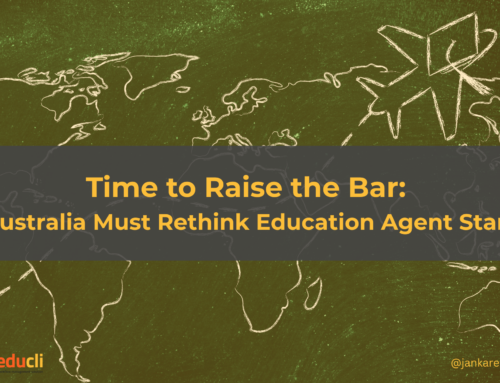Are we witnessing a change for Higher Education globally?
Recent changes in international education policies across the UK, Canada, and Australia raise an unsettling question: Are these governments intentionally undermining higher education as a sector? With universities traditionally being high-income, low-tax entities, coupled with a growing shift towards short courses, online delivery, and micro-credentials, it seems that the very foundation of higher education is under siege.
The UK: Universities Struggling Under Policy Pressures
The UK’s higher education sector has long been a powerhouse, attracting international students with its prestigious institutions and diverse programs. However, recent policy changes, including tighter visa restrictions and a crackdown on so-called “low-quality” courses, have put immense pressure on universities. The ongoing struggle of UK universities, exacerbated by Brexit, has led to a significant drop in international student enrolments, particularly from the European Union. This decline has had a cascading effect on university revenues, pushing many institutions into financial difficulties.
Adding to the strain, the UK government’s focus on expanding apprenticeships and vocational training, alongside its endorsement of shorter, more targeted courses, challenges the traditional university model. These shifts suggest a deliberate move away from long-term, research-based education towards a more immediate, skills-focused approach. This could be seen as a direct attack on the traditional higher education model, which relies on longer, more comprehensive degree programs.
Canada: Enrolment Drops and Changing Demands
In Canada, a country known for its welcoming stance on international students, recent trends tell a different story. Despite the high demand for Canadian education, universities have seen a noticeable drop in enrolments. This decline is partly due to stricter immigration policies and the increasing cost of living, which has made Canada a less attractive option for international students.
Moreover, the Canadian education system is also witnessing a shift towards shorter, more affordable courses that offer quicker entry into the workforce. Micro-credentials and online courses are becoming increasingly popular, as students seek flexible and cost-effective ways to gain the skills needed in today’s job market. This shift could be interpreted as a move away from traditional degree programs, further eroding the financial stability of universities that depend on international students for income.
Australia: The High Cost of Higher Education
Australia’s higher education sector, once a booming industry, is now grappling with significant challenges. The recent changes to student migration policies, including increased visa fees, stricter entry requirements, and proposed caps on international student numbers, are creating a hostile environment for universities. These changes are making it increasingly difficult for universities to attract and retain international students, leading to a drop in enrolments and a subsequent loss of revenue.
The high operational costs of running universities in Australia, coupled with these policy shifts, are putting unprecedented financial strain on institutions. Additionally, the rise of short courses and online learning options is diverting potential students away from traditional degree programs. This trend not only threatens the income streams of universities but also undermines the value of comprehensive higher education.
Is this planned?
The simultaneous occurrence of these policy changes in the UK, Canada, and Australia raises the question: Is this a coordinated attack on the higher education sector? The push towards shorter courses, online delivery, and micro-credentials, combined with the increasing financial pressures on universities, suggests a deliberate attempt to reshape the education landscape.
Governments seem to be prioritising skills-based education that aligns more closely with immediate workforce needs, at the expense of traditional higher education. While this approach may address short-term economic goals, it risks devaluing the comprehensive education that universities have historically provided.
As these countries continue to tighten the screws on international education, the long-term impact on the global education market could be profound. If universities are forced to downsize or shift their focus away from research and comprehensive education, the very fabric of higher education could be irreparably damaged. This potential shift not only threatens the future of universities but also undermines the value of higher education as a pillar of intellectual and societal advancement.
The question remains: Are these changes an attack on higher education, or are they simply a response to the evolving demands of the global economy?
#highereducation #studyabroad #studyUK #studyCanada #studyAustralia #internationaleducation #educli





Leave A Comment